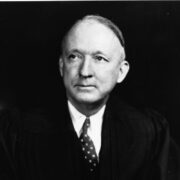Reading a recent Associated Press article concerning the Texas law and the Ten Commandments being posted in each Texas public school classroom, I read the following:
“I’m not evangelizing,” said eighth-grade U.S. history teacher Dustin Parsons, who has a Ten Commandments poster hanging in his classroom in the small city of Whitesboro. He said the display helps him to demonstrate the influence of Christianity on the country’s founding principles. “I’m doing it more from a history source perspective in how they were building the Constitution,” he said.
Whether Mr. Parsons is evangelizing or not depends on the poster in his classroom. For example, if the poster reads “Ten Rules for Living” or a similar generic heading, he may simply be offering basic life rules. If no capitalization is used for a deity, he may not be evangelizing Christianity but suggesting that belief in a higher power can lead to a fuller or richer life.
If, however, either version of the Ten Commandments, as printed in my KJV Bible, is on a wall, even a back fence, he evangelizes because by posting it in his classroom, he is essentially saying, ‘This is the only true religion.’ But unless he shares a photograph of the poster with me, I can’t determine whether he evangelizes.
However, there is one thing I can conclude about Mr. Parsons, based on his quoted words in the article — he has little, if any, understanding of U.S. History.
As a retired educator and citizen, I would like to point out a few historical facts for Mr. Parsons. Many of the Founding Fathers were Deists, and we have little accurate information about their beliefs. Calling them Christian because they wrote the word God is akin to calling a modern-day person a Christian because he or she writes OMG in a text.
The writers mentioned religion in the Constitution in only two situations, and in both to stress that religion had no place in their newly formed government. Article 11 of the treaty between America and Tripoli, written during the Presidency of George Washington but ratified under that of John Adams, begins, “As the government of the United States of America is not in any sense founded on the Christian Religion….”
Because of these few examples, I question how Mr. Parsons can be using his posted Ten Commandments “more from a history source perspective in how they [Founding Fathers] were building the Constitution,” since the writers had no religious perspective in writing the Constitution, except to separate religion and state. Is Mr. Parsons dishonest about his intentions, or mistaken about the writing of the Constitution, or even about theology? Or all three?
Mr. Parsons is an adult who obviously has his own educational philosophy, and he is an example of how ignorant we adults often are about our nation’s history. That is unfortunate for Mr. Parsons, our nation, but especially for his students. Because of his flawed information on the connection between Christianity and our nation’s founding, he is teaching a wrong view of America’s formation and Christianity. His “history source perspective of religion” as it pertains to our Constitution is not historical or religious.
Our Founding Fathers did not make Christianity an integral part of our Constitution because they understood that religion in an emerging America did not need a government any more than Christianity in the 1st century needed the Roman Empire.
In 2025, Christianity does not require the misguided Texas legislature either, but it could use some Christ followers who live the Sermon on the Mount.



